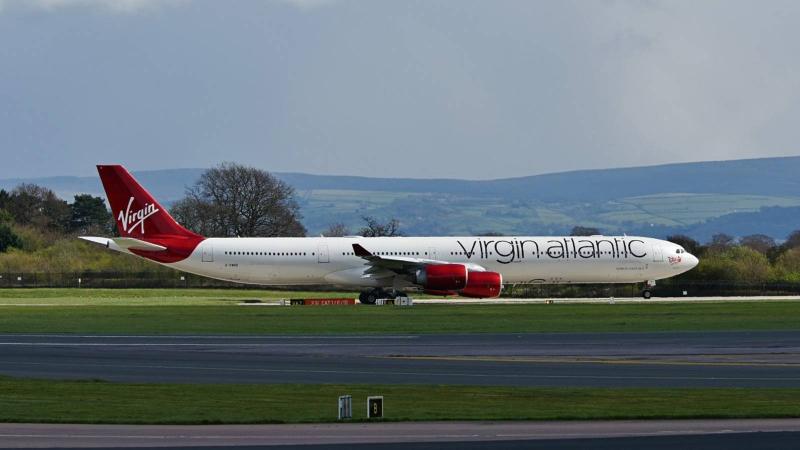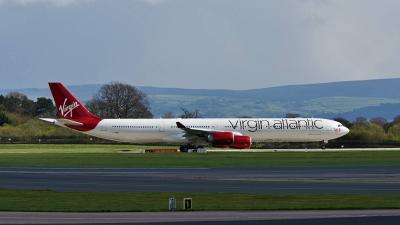A Virgin Atlantic passenger aircraft successfully completed a flight from London to New York using sustainable aviation fuel, highlighting the potential of low-carbon options that make up a small part of the fuel mix in the industry. The flight only carried Virgin founder billionaire Richard Branson and a few others and is scheduled to return to London using conventional jet fuel. Airlines rely on fuel made from waste to reduce their emissions by up to 70 percent, but the high cost and scarcity of materials needed to produce sustainable aviation fuel make large-scale production challenging. Sustainable fuel accounts for less than 0.1 percent of the total jet fuel used globally and is three to five times more expensive than regular jet fuel.
The journey of the Boeing 787 powered by Rolls-Royce Trent 1000 engines marks the first time a commercial aircraft has flown long distances using 100 percent sustainable fuel. Branson stated in London before the flight, "It will take time before we can get enough fuel for everyone to fly. But you have to start." Decarbonizing the aviation industry is not easy compared to land travel, representing about two to three percent of global carbon emissions.
The flight took off at 11:49 GMT from Heathrow Airport in London yesterday, carrying Branson, Virgin Atlantic CEO Shai Weiss, and UK Transport Minister Mark Harper. The aircraft landed at John F. Kennedy International Airport in New York at 14:05 Eastern Time (19:05 GMT), 35 minutes ahead of schedule, where it was welcomed by U.S. Deputy Transportation Secretary Polly Trottenberg and others. Virgin Atlantic indicated that the fuel used for Tuesday's flight was primarily made from used cooking oil and animal fat waste mixed with a small amount of synthetic aromatic kerosene. The industry hopes that Virgin's flight will alert governments to the need for financial support to make sustainable aviation fuel more widely available.




